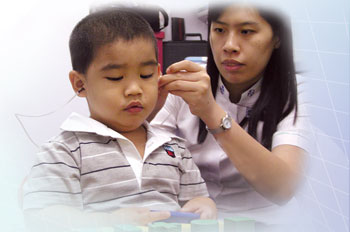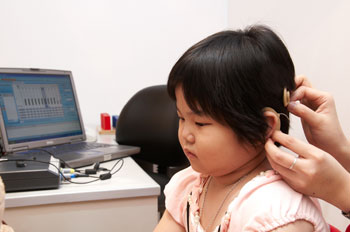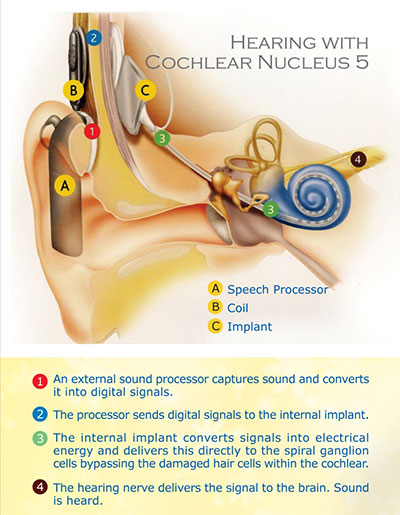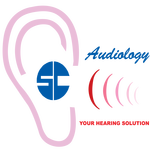
For some people, deafness is one of the most difficult disabilities, as it deprives an individual from this "speaking & hearing" world. Hearing aids do help but not for patient with severe to profound hearing loss. This is because hearing aids amplify sounds to be louder but not clearer.
Advances in technology provide an alternative cochlear implant which provide greater access to hearing to those suffering from severe to profound hearing loss.
What is Cochlear Implant?
A cochlear implant is an electronic device that restores partial hearing to the deaf. It is surgically implanted into the inner ear and activated by a device worn outside the ear.
Unlike a hearing aid, it does not make sound louder. Instead, the device bypasses damaged parts of the auditory system and directly stimulates the hearing nerve, allowing individuals who are profoundly hearing impaired to receive sound.

Who can benefit from Cochlear Implant?
Individuals who are severely or profoundly deaf.
Individuals who receive little or no benefit from hearing aids.
Individuals who communicate ineffectively through hearing aids or lipreading.
Individuals who want to be part of the hearing world.
What are the benefits of Cochlear Implant?
Some of the benefits include the ability to:
Hear conversation and environmental sounds at comfortable loudness level.
Detect and identify environmental sounds, such as the doorbell, car horn, and telephone ringing.
Improve ability to maintain own voice at an appropriate loudness level.
Understand others more accurately and with less effort.
Understand speech by listening alone (without lipreading).
Communicate through telephone.
Enjoy music.
The ability to hear sounds, develop better speech understanding, and interact with the hearing world can have a positive effect on a recipient's sense of involvement in daily life. These new skills often raise self-confidence and improve relationships with family, friends, and co-workers, as well as increased job and social opportunities.














